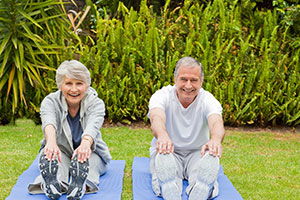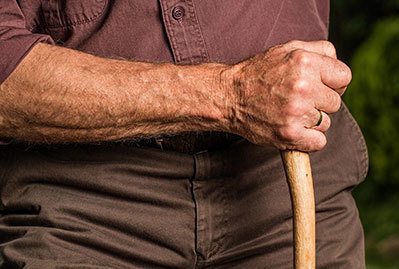One of the hardest things about getting older is loss of mobility, and along with it, the struggle to continue doing the things you’ve always enjoyed. Depression rates are high among seniors, and the primary reason is that many older people are no longer as engaged and active in life. Thankfully, with the help of technology and resources available today, you or your elder family member, can do more and live a happier, more fulfilling life despite mobility loss.
Mobility Aids
Being willing to adapt how you do things is the number one way to stay engaged and happy as you age, and that includes being willing to get a little assistance. Mobility aids like canes and walkers can provide that support you need to get around without the worry of falling.

Depending on your needs, you may find more flexibility from a scooter or wheelchair. The type of aid that’s best for you will depend on several factors, but whatever you choose, don’t be afraid to use something that will give you the most security and independence.
Adapt Your Home
When you have limited mobility, getting around and doing things safely at home is just as important as being able to get out and about. Falling is one of the greatest risks for seniors with limited mobility, but there are modifications you can make around the house to reduce this risk. Consulting a contractor, along with an occupational therapist, can help guide you to making the right home modifications to prevent falls. Another common concern is being able to reach everything you need without falling or dropping things, especially in the kitchen.
As HomeAdvisor explains, “The most-used and heaviest items should be moved to waist-high shelving. For higher shelving, a step stool with a bracing bar will make it easier to grab items and place them on the counter. For corner cabinets, sliding shelves or Lazy Susans are ideal installations.”
Adapt Your Activities
If you have a hard time getting around, it can be harder to get out and stay connected socially. Some seniors embrace social media with enthusiasm, while others are a little skeptical. If you fall into the skeptical category, consider giving it a try! The Huffington Post recommends using social media as an easy way to stay up to date on what’s new in your friends and family members’ lives.

It’s also interactive, so you can use apps to have a quick chat with a friend or use Pinterest to find and save ideas for your favorite hobby. The way you communicate doesn’t have to be the only activity you adapt. Don’t underestimate the adaptations you can make to the activities you’ve always done so that they are still accessible.
For example, if you like gardening, you can use raised beds, add resting places around your garden, and get special gardening tools for seniors. Gardening is just one example. Use the internet as a resource to find ideas for how to adapt whatever you love doing.
There are many physical and emotional benefits that gardening provides. Gardening is a great activity to keep you active and healthy no matter what your age. Even those with some physical limitations can enjoy gardening. See 25 benefits of gardening by clicking here.
Exercise and Stretch to Increase Mobility

Youur primary goal is to be able to do your daily activities safely, and home adaptations and walking aids may be necessary to make that possible. That doesn’t mean you have to depend on these adaptations entirely, though. Stretching and exercising can help build muscle strength and increase flexibility and balance, giving you a greater range of motion and making it easier to do everyday activities with less risk of injury. Use these stretching tips from Healthline for safe stretches designed especially for seniors. Consult your doctor before doing any stretches or exercises, but as long as your doctor agrees that you can do so safely, consider trying light weights, water aerobics, or yoga, all of which are ideal exercises for seniors.
While mobility loss is a hard part of aging, you don’t have to accept it sitting down. Defying mobility loss and bringing joy back into your life is entirely possible. If you keep an open mind and are willing to adapt your home and activities, you will be able to regain independence and thrive as you age.





